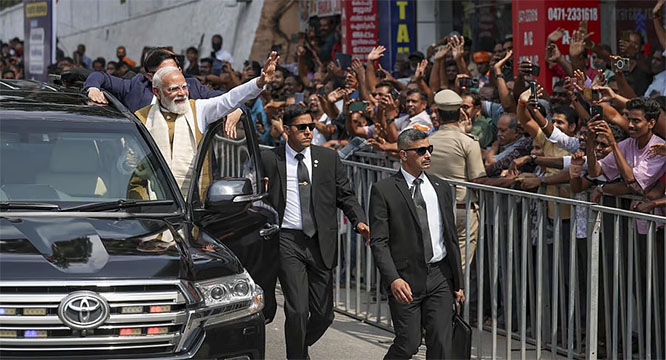
As the new financial year begins, several significant financial and tax-related changes take effect from April 1, 2025. Many of these updates were announced by Finance Minister Nirmala Sitharaman in the Union Budget 2025 and have now been officially approved as part of the Finance Bill 2025.
Some of the key changes include income tax exemption on annual earnings up to Rs 12 lakh, deactivation of UPI for long-unused mobile numbers, and suspension of dividend payouts for individuals who haven’t linked their PAN with Aadhaar. Below is a comprehensive look at all the important updates.
1. Income Tax Exemption & New Tax Slabs
Under the revamped tax regime:
✅ Individuals earning up to Rs 12 lakh per year will be completely exempt from income tax.
✅ For salaried employees, a standard deduction of Rs 75,000 raises the effective tax-free limit to Rs 12.75 lakh.
✅ To claim a rebate of up to Rs 60,000, taxpayers must file their returns on time.
✅ The new tax structure applies to income earned between April 1, 2025 – March 31, 2026, and will be reflected in ITR filings for FY 2025-26 (AY 2026-27).
2. Major Changes in TDS & TCS Rules
To provide tax relief and streamline transactions, several TDS (Tax Deducted at Source) and TCS (Tax Collected at Source) amendments have been introduced:
🔹 TDS on bank interest for senior citizens has doubled from Rs 50,000 to Rs 1 lakh.
🔹 TDS on dividend income has increased to Rs 10,000.
🔹 TCS on overseas remittances under the Liberalised Remittance Scheme (LRS) has been raised from Rs 7 lakh to Rs 10 lakh.
3. UPI Deactivation for Inactive Mobile Numbers
The National Payments Corporation of India (NPCI) will start unlinking UPI IDs associated with inactive mobile numbers. If your number has been inactive for a long period:
🔸 Your bank may remove it from their records.
🔸 You could face disruptions in Google Pay, PhonePe, or any UPI-based transactions.
🔸 This change enhances security by preventing unauthorized access to old UPI-linked accounts.
4. New GST Rules
Several Goods and Services Tax (GST) updates take effect:
🔹 Multi-factor authentication (MFA) is now mandatory for logging into the GST portal, improving online security.
🔹 E-way bills can only be generated for documents issued within the last 180 days, ensuring better compliance.
🔹 Hotel room tariffs above Rs 7,500 per day are now classified as "Specified Premises," attracting an 18% GST on restaurant services.
5. Toll Tax Hike Across National Highways
From April 1, 2025, toll charges across various highways will increase:
🚗 Delhi-Meerut Expressway, NH-9: Toll for cars will rise by Rs 5 to Rs 170.
🚛 Trucks and buses will now pay Rs 580 on major highways.
🚗 Delhi-Jaipur Highway: The Kherki Daula toll plaza will maintain current rates for cars, but the monthly pass for larger vehicles will rise by Rs 20 to Rs 950.
6. End of Equalisation Levy on Digital Transactions
The Finance Act 2025 removes the Equalisation Levy, which previously imposed a 2% tax on e-commerce and 6% on online advertisements. This change aims to:
✅ Reduce tax burden on digital service providers.
✅ Attract foreign investments in India’s digital economy.
7. Positive Pay System for Cheque Payments
To prevent bank fraud, the Positive Pay System requires account holders to:
✅ Electronically submit cheque details for payments above Rs 50,000.
✅ Ensure the details match before the cheque is processed.
8. KYC Mandatory for Mutual Fund & Demat Accounts
🔹 KYC (Know Your Customer) verification is now compulsory for mutual fund and demat accounts.
🔹 Nominee details will also undergo re-verification to enhance security.
9. Major Credit Card Perk Reductions
Credit card users will see major perk reductions, particularly with SBI, IDFC First, and Axis Bank:
❌ SBI Cards will remove complimentary insurance coverage for accidents (Rs 50 lakh for air, Rs 10 lakh for rail).
❌ Reward points on SBI Cards will be slashed from 15% to just 5%.
❌ IDFC First Club Vistara cardholders will lose milestone benefits and Club Vistara Silver membership perks.
❌ Axis Bank is discontinuing Maharaja Club tier memberships and premium vouchers.
10. Minimum Balance Rules for Bank Accounts
📌 Major banks like SBI, PNB, and Canara Bank have updated their minimum balance requirements based on account location:
🏙 Urban branches will require higher minimum balances.
🏡 Rural and semi-urban accounts may have lower minimum balance thresholds.
🚨 Failing to maintain the required balance will result in penalty charges, varying by bank.
11. Unified Pension Scheme (UPS) for Government Employees
The Unified Pension Scheme (UPS), introduced in August 2024, takes effect:
✅ Central government employees under NPS can opt for UPS.
✅ Those with at least 25 years of service will receive 50% of their average basic salary as a monthly pension.
Final Thoughts
These changes, introduced as part of the Union Budget 2025, mark a significant shift in India's tax, banking, and digital transaction landscape. With higher tax exemptions, updated TDS & TCS rules, stricter banking security, and GST amendments, the new financial year aims to simplify compliance while improving financial security and economic efficiency.
Stay informed and ensure all necessary updates to your financial accounts to avoid disruptions.






Comments
Add new comment